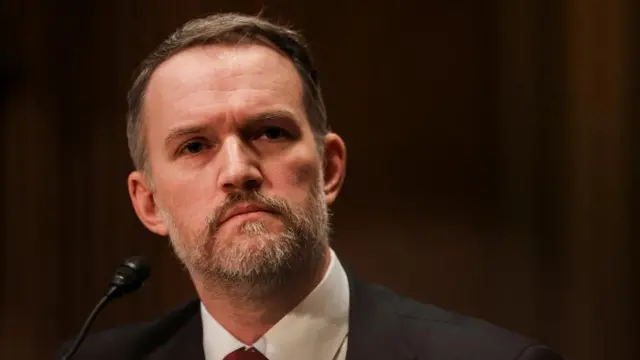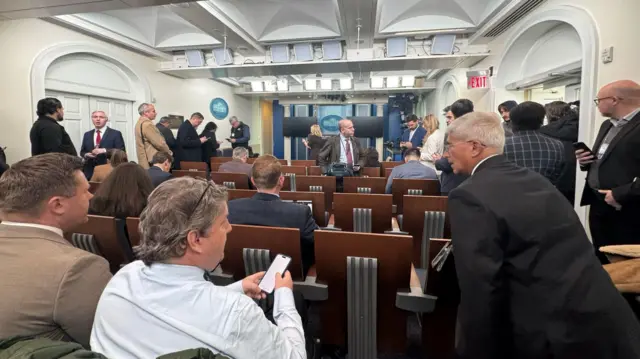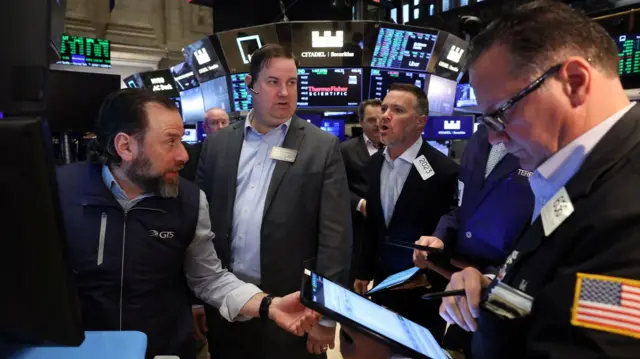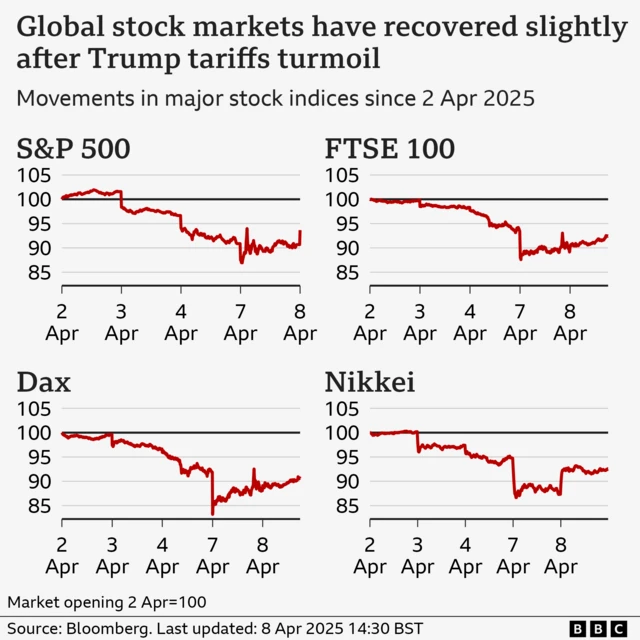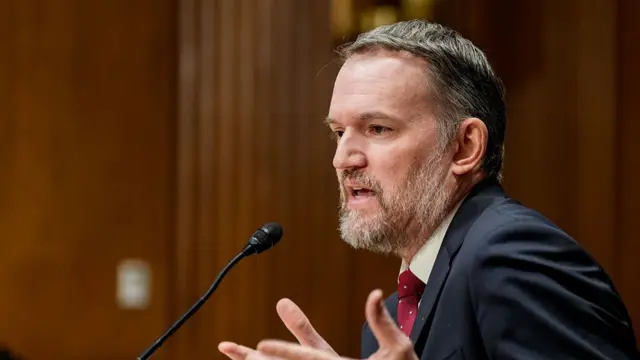President Trump made final decision on tariff plans - Leavittpublished at 18:36 BST 8 April
Asked about how the tariff plan was decided - and who was involved in those negotiations - Leavitt says the plan was discussed by the entire trade advisors team over many meetings.
She adds that the president made the final decision after being presented with a number of different options.
“The entire trade team is on board,” she says.


